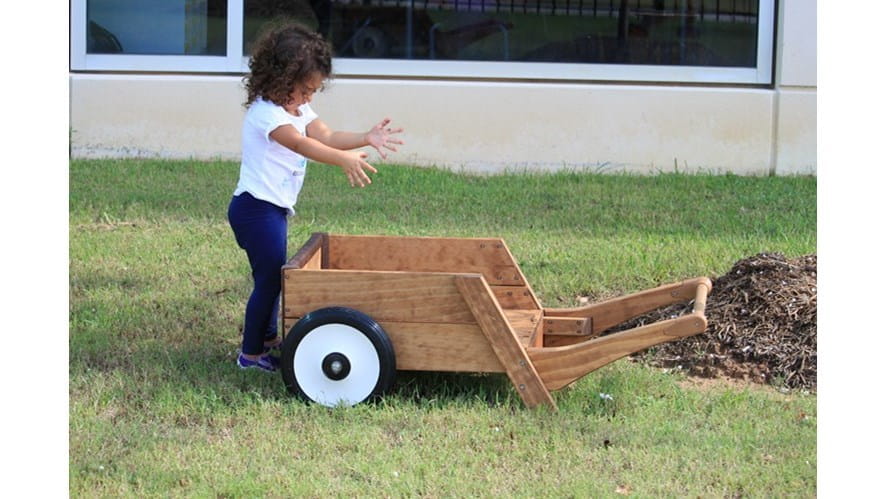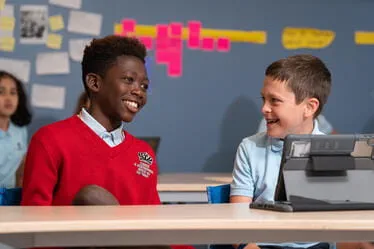I have had the good fortune to spend time over the last couple of weeks with the youngest members of our school community and their teachers.

I have had the good fortune to spend time over the last couple of weeks with the youngest members of our school community and their teachers.

I have had the good fortune to spend time over the last couple of weeks with the youngest members of our school community and their teachers.
Every time I visit my heart is overflowing with joy and warmth. It feels already that there exists a special culture, one that immerses the young child in a network of relationships and shared meaning that overlaps with scientific knowledge about development and best practices for care. It is an absolute pleasure to observe the interactions between our teachers and the children and how, in a very short time there exists already a strong trust between the children and the adults. Each child is valued as a child.
I believe that our approach and the quality of our teachers has done much to ensure that the children feel safe, secure and joyful at school. For most of the children beginning in our two’s programme, the first encounter that the children had was a ‘stay and play’ session and a time where the parents and the child could meet the teachers before they started. For the parents to be present at these sessions is so important to communicate a sense that children and parents are welcome, expected and considered important. We view parents as the child’s first and most enduring educators who have much to offer us as we build up a relationship with the child. This initiated a dialogue for reciprocal sharing between parents and teachers. The parents were able to share information about the preferences, desires and habits of their child. It was possible for the parents and children to be introduced to our setting and to begin to feel at home there. These first encounters are so important to establish trusting and caring relationships. Depending on the child, a plan for the transition into our setting is carefully thought through so as to be attentive to the child’s needs. Daily communication is another important tool for knowing each other. This daily communication develops through encounters that occur every day between the parents and teachers. Our intention is to create a relationship of knowing each other, trusting each other, comparing notes and ex-changing ideas. We hope to build a relationship of participation and belonging that develops over time.
Lella Gandini reminds us that,
“The renewed emphasis on the quality of relationship and care in the light of new findings in brain development research that show how warm, responsive, consistent care and its continuity foster many aspects of successful social, emotional and cognitive development in young children.”
(p.2, 2001)
I am looking forward to seeing how this wonderful experience continues to flourish and evolve as a source of enjoyment, pleasure and lasting friendships that grows with the children and their families.
References
Gandini, L. and Edwards, C. (Eds) (2001) Bambini. Teachers College Press
Every time I visit my heart is overflowing with joy and warmth. It feels already that there exists a special culture, one that immerses the young child in a network of relationships and shared meaning that overlaps with scientific knowledge about development and best practices for care. It is an absolute pleasure to observe the interactions between our teachers and the children and how, in a very short time there exists already a strong trust between the children and the adults. Each child is valued as a child.
I believe that our approach and the quality of our teachers has done much to ensure that the children feel safe, secure and joyful at school. For most of the children beginning in our two’s programme, the first encounter that the children had was a ‘stay and play’ session and a time where the parents and the child could meet the teachers before they started. For the parents to be present at these sessions is so important to communicate a sense that children and parents are welcome, expected and considered important. We view parents as the child’s first and most enduring educators who have much to offer us as we build up a relationship with the child. This initiated a dialogue for reciprocal sharing between parents and teachers. The parents were able to share information about the preferences, desires and habits of their child. It was possible for the parents and children to be introduced to our setting and to begin to feel at home there. These first encounters are so important to establish trusting and caring relationships. Depending on the child, a plan for the transition into our setting is carefully thought through so as to be attentive to the child’s needs. Daily communication is another important tool for knowing each other. This daily communication develops through encounters that occur every day between the parents and teachers. Our intention is to create a relationship of knowing each other, trusting each other, comparing notes and ex-changing ideas. We hope to build a relationship of participation and belonging that develops over time.
Lella Gandini reminds us that,
“The renewed emphasis on the quality of relationship and care in the light of new findings in brain development research that show how warm, responsive, consistent care and its continuity foster many aspects of successful social, emotional and cognitive development in young children.”
(p.2, 2001)
I am looking forward to seeing how this wonderful experience continues to flourish and evolve as a source of enjoyment, pleasure and lasting friendships that grows with the children and their families.
References
Gandini, L. and Edwards, C. (Eds) (2001) Bambini. Teachers College Press